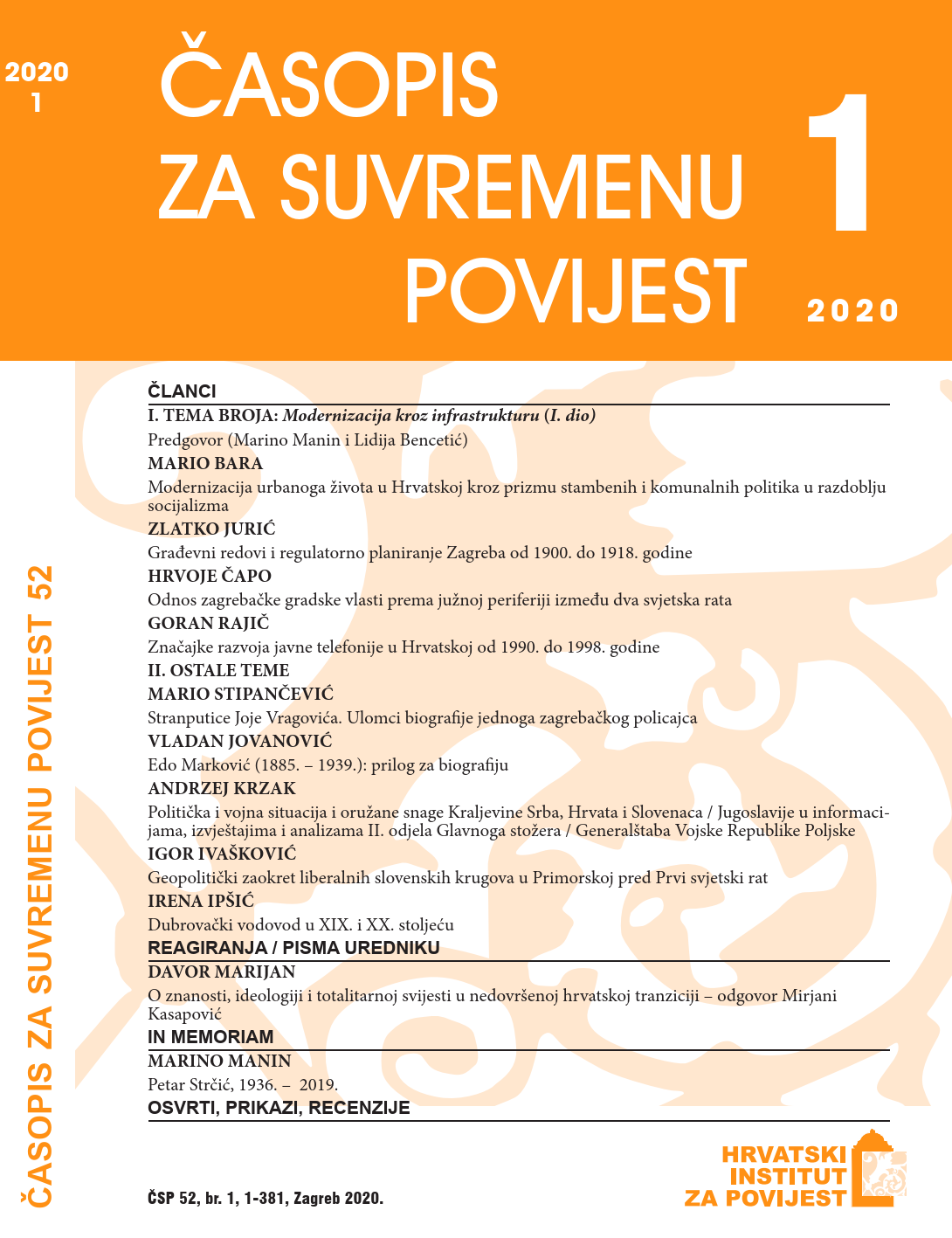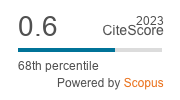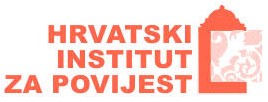Master Plans and the Regulatory Planning of Zagreb in the 1900–1918 Period
DOI:
https://doi.org/10.22586/csp.v52i1.9671Keywords:
Zagreb; master plans; regulatory planning; 20th century; Milan Amruš; Vladoje Eisenbart; Croatian Society of Engineers and Architects committeeAbstract
After the unsuccessful attempt of Zagreb mayor Adolf Mošinski and councillor Adolf Hudovski to secure approval for the Master Plan of 1894, a discussion on three variants (directions) of realising a new master plan of Zagreb took place in 1908 and 1909. This paper elaborates and analyses these three proposals of realising the Zagreb master plan.
The first is the variant of Vladoje Eisenbart, who continued and elaborated the idea of the Master Plan as one of the basic instruments in urban regulation. Eisenbart’s text from 1908 was revised by a collective of authors and was, following numerous objections and long discussions, formed into a final proposal in 1909. The second variant was advocated by Antun Kostial, Sr, Mirko Ferrich, Kamilo Bedeković, and a committee of the Croatian Society of Engineers and Architects, who viewed Eisenbart’s 1908 proposal on two levels. They rejected the idea and purpose of the master plan as an exclusively regulatory document, and transformed it into a development and economic document. The committee unexpectedly changed into a fierce advocate of private ownership and entrepreneurship. The third variant was advocated by the mayor, Dr Milan Amruš, who forced the founding of a construction committee and substantial limitation of the powers and importance of the city government and council. The main problem in this proposal was the introduction of a construction committee as a separate construction authority that would have, using the proposed powers, suspended the construction authority of the first instance (the city government) and the overseeing activities of the city council. Regardless of the existing party divisions and personal animosities of the city government members, the master plan proposal of 1909 stood no chance at the city council vote.
Downloads
Published
How to Cite
Issue
Section
License
Copyright (c) 2020 authors and journal

This work is licensed under a Creative Commons Attribution-NonCommercial 4.0 International License.
Copyright holders are the publisher Croatian Institute of History and the authors. Journal of Contemporary History is an Open Access journal. Users are allowed to read, download, copy, redistribute, print, search and link to material, and alter, transform, or build upon the material, or use them for any other lawful purpose as long as they attribute the source in an appropriate manner according to the Creative Commons licence CC BY-NC. The papers published in Journal of Contemporary History can be deposited and self-archived in the institutional and thematic repositories providing the link to the journal's web pages and HRČAK. Journal does not charge article processing charges (APC). The editors assume no responsibility for statements of fact or opinion made by contributors.




